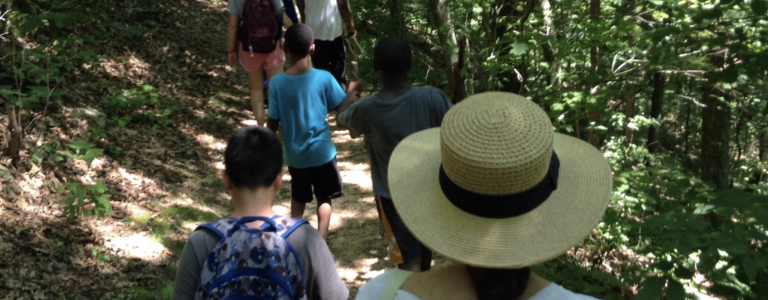
From June 26 to July 1, 2016, around 60 boys and girls of incarcerated parents, ages 7 to 12, gathered together at Camp Overlook in Keezletown, Virginia, to attend the All God’s Children Camp at the Virginia Conference of The United Methodist Church. This is a program created to support the children of incarcerated parents through mentoring by professionals and volunteers who share their time and expertise with the goal of positively impacting the lives of these children.

There were two groups of adults—counselors and mentors–who ran the program and supported the children. The counselors were experts in the fields of social work and clinical psychology and were responsible for training and supporting the mentors so they would have the healthiest possible connections with the children. Most of the mentors were students or graduates who wanted to practice working with kids as well as gain experience in social support. There was also group of mentors who were there performing community service. COIPI’s president, Hamed Farmand, voluntarily took a position of mentor in the camp, helping two at-risk boys, ages 8 and 9, as well as supporting five other boys, ages 8-10, who were suffering the effects of parental incarceration.
Each day in the camp, there were activities such as swimming, nature, crafts, Bible study, and boating. Campers also attended a class called Harmony that helped them to understand their feelings as well as control their anger. Mentors made sure the kids played safely and also created interesting experiences for them while they were at camp. However, their main responsibility was to mentor these kids in good behavior and managing feelings.

Hamed shared parts of his book, Missing Mum, which is being translated to English by his sister, Elaheh Farmand. Missing Mum tells the story of Hamed’s experiences as a child whose mother was a political prisoner. He read parts of the book to his group at the beginning of each Harmony class over four days of the camp program. Each day, he read one chapter, talked about his feelings when he was a child with a mother in prison, as well as how he felt while writing his book. He also shared with the children how he managed his feelings and what helped him to cope with the trauma. All children in his group, seven boys and three girls, ages 7-10, now have their own copy of six chapters from the book. In their rest time and before sleeping at night, the boys in Hamed’s group read Missing Mum together or by themselves. Hamed also read other stories to help two of the boys get to sleep.
At the end of storytelling time during Harmony, the kids had a chance to ask questions of Hamed about his childhood and about writing his book. Christopher Lam, the Harmony facilitator, said, “For many of our youth, this was the first time they ever heard the author of a book read his/her story.” He thought “this brought more meaning to the story.” Christopher also added, “Many of our youth enjoyed your sharing and were very inquisitive. I also felt that a number of the mentees identified with your pain and struggles.”
This experience shows us that Missing Mum can interest children as well as adults from a wide range of cultures and backgrounds. On the last day of camp, Lori W. Smith, Director of All God’s Children Camp, took some books for her organization’s second summer camp in Occohannock so that the book would be shared with even more children. Hamed and his sister are still working on translating the book to English. As of July 5th, the date of this report, 20 out of 35 chapters have been translated.

As studies show, there are different factors affecting children of incarcerated parents. Most of these factors relate to each other. Many of the campers come from families with poor parenting styles and unhealthy environments. They do not have good role models and many don’t have strong relationships with their incarcerated parents. There is much research about the positive effects that “mentoring,” “social support,” and “storytelling” have on children of incarcerated parents. However, the lack of knowledge about positive parenting styles and non-healthy family and environmental support lead us to develop our educational
programs in support of families, caregivers, and parents who want to improve their relationships with their children. Connecting with organizations like The United Methodist Church helps us develop partnership programs that create positive relationships within these families.
As we continue to make connections with families, we hope the children who receive our support and services can develop in a more stable way, display fewer unhealthy behaviors, and find a coping mechanisms that best suit their lifestyles.

